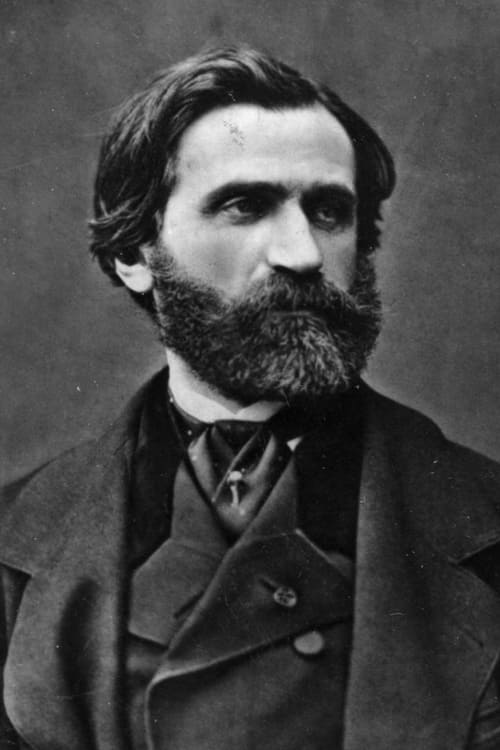Simon Boccanegra (2010)
장르 : 음악
상영시간 : 2시간 17분
연출 : Giorgio Gallione, Tiziano Mancini, Marina Bianchi
시놉시스
Part of Tutto Verdi series - Simon Boccanegra (2010) Parma. Revised version (1881). 'Simon Boccanegra' is an opera with a prologue and three acts by Giuseppe Verdi to an Italian libretto by Francesco Maria Piave, based on the play 'Simón Bocanegra' (1843) by Antonio García Gutiérrez, whose play 'El trovador' had been the basis for Verdi's 1853 opera, 'Il trovatore'. Simon Boccanegra was first performed at Teatro La Fenice in Venice on 12 March 1857

Giancarlo Del Monaco's passionate and intelligent production of Jacques Offenbach's magnum opus creates a climactic kaleidoscope of deep and convincing emotions. A highly credible incarnation of the pitiable Kleinzach he sings about, Aquiles Machado is the poet who loses his romantic idealism, his reflection and finally his soul to a 'trio of charming enchantresses'.

This was a 1988 revival of a 1971 production that teamed Domingo (Vasco da Gama) and Verrett (Selika - both then very much in their prime) in Meyerbeer's discursive swan-song. Seventeen years on, they are more statuesque than sexy, but both give larger-than-life performances that contain moments of completely thrilling vocalism. The casting is very strong, with the exception of Justino Diaz's Nelusko, which has strong presence but not much vocal allure. As Inez, Vasco da Gama's fiancee and rival for Shirley Verrett, Ruth Ann Swneson sings with great beauty and has impressive stage presence, very much holding her own in the confrontation with Verrett in the last act. Domingo is refulgent of tone and dramatically convincing, and he and Verrett strike sparks. She really comes into her own in one of the most preposterous mad-scenes in all opera, where she is slowly poisoned by the scent of a giant tree, contriving to make this dramatically truthful and even moving.

Live from Teatro alla Scala 1987.
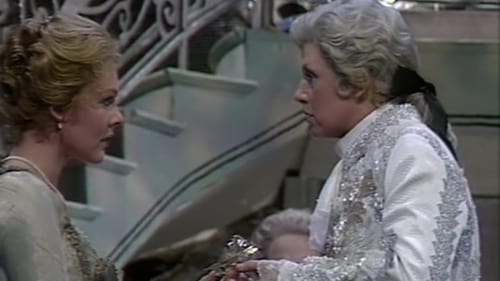
Live performance, new production season 1984-5. BBC 2 Television relay on 30 March 1985 of performance of February 11.
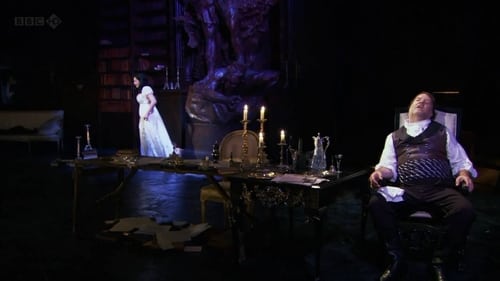
The star singers in this revival of the 2006 production were Angela Gheorghiu, Jonas Kaufmann and Bryn Terfel; the Royal Opera Chorus and the Orchestra of the Royal Opera House were under the baton of Antonio Pappano, the Music Director of the Royal Opera House. The pageantry of church ritual, the darkness of a brooding study with its hidden torture chamber and the false optimism of the light of a Roman dawn - all throw into relief the love of the beautiful diva Tosca, the idealism of her lover Cavaradossi and the deadly, destructive obsession of the malevolent Chief of Police, Scarpia. Drama, passion and fabulous music.

Joyce DiDonato gives a sensational performance as Mary, Queen of Scots, in Donizetti’s bel canto drama, opposite Elza van den Heever as Queen Elizabeth. This Live in HD presentation of David McVicar’s acclaimed 2012 production also stars Matthew Polenzani as Leicester, the man caught between the rival queens. Maurizio Benini conducts.
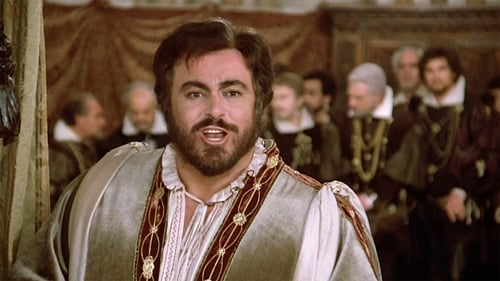
Rigoletto is a jester in the court of the Duke of Mantua. He has a hunch-back and he's rather unattractive, but he's good at his job of humiliating the courtiers for the amusement of the Duke. The courtiers, of course, are not amused. The Duke is a ladies man who feels his life would be meaningless if he couldn't chase every skirt he sees. In fact, we learn as the opera begins that he's recently been noticing a young lady every Sunday on her way to church, and he's vowed to have his way with her. What nobody realizes is that the girl is the jester's beloved daughter, Gilda, and that Gilda has seen the Duke every Sunday and is smitten with him. Suddenly Count Monterone appears at court, furious that the Duke has seduced his daughter. Rigoletto ridicules Monterone, the Duke laughs, and Monterone casts an awful curse on both of them. Later, the courtiers discover that Rigoletto is secretly living with Gilda...

Jonas Kaufmann and Anna Caterina Antonacci bring rare erotic intensity to the drama of Don José and Carmen in this darkly passionate reading of one of the most popular operas. Kaufmann uses his burnished tenor and smouldering good looks to portray the man undone by Carmen's love. As the object of his desire, Antonacci gives a physical and compelling performance.

The first ever performances in Munich, this production was entrusted to Dmitri Tcherniakov, whose worldwide reputation is underpinned by productions like Eugene Onegin and Macbeth at the Paris Opera and Don Giovanni at Aix-en- Provence. The superb international cast includes a fine Blanche de la Force in Susan Gritton and an excellent Madame de Croissy by Sylvie Brunet, who was favourably compared to Rita Gorr in the press.

Live performance by Les Arts Florissants at the Théâtre de Caen, recorded on 18 Octorber 2011. "One of the earliest operas deserving of the name, Didone is our first surviving musical version of the famous episode in Virgil's Aeneid where the Trojan Hero loves and then cruelly leaves the noble Dido." — from the DVD back cover

Part of Tutto Verdi series - Attila (2010) Parma. 'Attila' is an opera in a prologue and three acts by Giuseppe Verdi to an Italian libretto by Temistocle Solera, based on the 1809 play 'Attila, König der Hunnen' ('Attila, King of the Huns') by Zacharias Werner. The opera received its first performance at La Fenice in Venice on 17 March 1846.
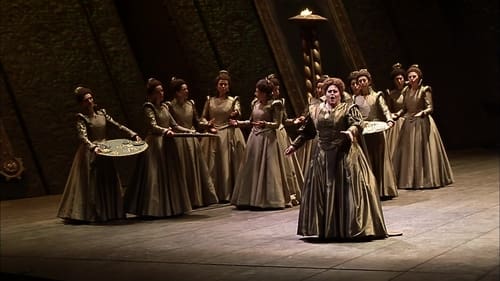
Part of Tutto Verdi series - Ernani (2005) Parma. 'Ernani' is an operatic dramma lirico in four acts by Giuseppe Verdi to an Italian libretto by Francesco Maria Piave, based on the play 'Hernani' by Victor Hugo. Ernani was first performed on 9 March 1844 at the Teatro La Fenice in Venice.
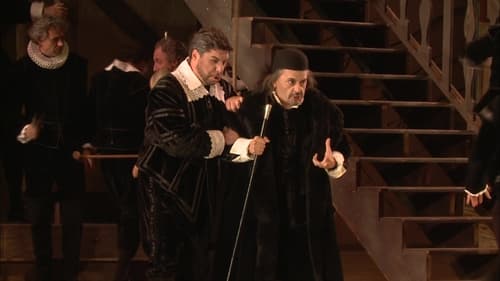
Part of Tutto Verdi series - Falstaff (2011) Parma. 'Falstaff' is an opera in three acts by the Italian composer Giuseppe Verdi (1813–1901). The libretto was adapted by Arrigo Boito from Shakespeare's 'The Merry Wives of Windsor' and scenes from 'Henry IV, parts 1 and 2'. The work premiered on 9 February 1893 at La Scala, Milan
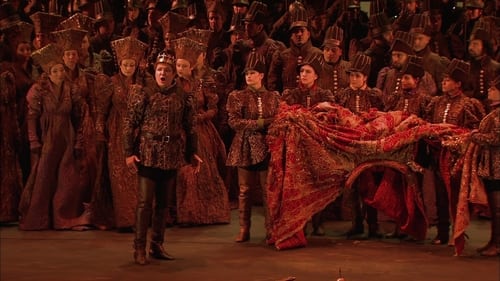
This work predates Thchaikowsly’s for almost 4 years, and it is base don the Schiller play I have previously criticized for its lack of historical accuracy. It is essentially focused on three major voices, soprano, tenor and baritone, with a basso to spice it up. New Yorker Evan Bowers may not be a matinee idol, but he sails into the role with a bright, focused lyrico spinto tenor voice. Renato Bruson was 72 years old in 2008, when he took this role (first sung by him in1989) and it shows, with quite a wobble on many passages; yet his voice commands the stage and rises majestically in the ensembles. And then, Bulgarian Svetla Vassileva, who is not burned at the stake, as in “Maid”, but dies heroically in battle.
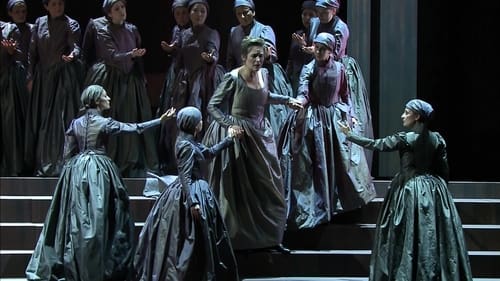
Part of Tutto Verdi series - I due Foscari (2009) Parma

I Lombardi alla prima crociata (The Lombards on the First Crusade) was Verdi’s fourth opera and received its first performance at La Scala, Milan, in February 1843. The grandiloquent subject matter is fleshed-out with broad-brushed musical and dramatic effects and lavish choral scenes created a correspondingly impressive impact. A great success in Milan, it spread to the rest of Europe within a matter of only a few years.
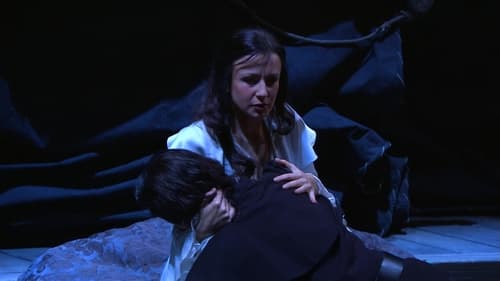
The caption on the DVD sleeve reads “This Is how Verdi should be played!” and I could not agree more. The trio of principals: Ribeiro, Lungu, and Dalla Benetta , offer youthful exhuberance and intensity, good looks and glorious voices. The rest of the cast is equally good. Superb conductor, traditional production, great staging. Anf of course, Verdi’s exquisite music. It has renovated my faith in the totality of the Verdi canon, not only its most performed titles.

Director Stefano Poda set the action in the mid 19th century. There’s not a piece of furniture in the whole show. Just a lot of slabs which change position as the opera progresses. There were also a lot of non-singing characters in strange poses who popped up here and there. This sort of staging is not the usual for the Parma house which typically stays close to the traditional. There’s nothing wrong with the staging that a first rate musical effort couldn’t overcome. But that effort was not forthcoming.

Part of Tutto Verdi series - Luisa Miller (2007) Parma.

Part of Tutto Verdi series - Un ballo in maschera (2011) Parma. Based on a Scribe libretto and begun as 'Gustavo III' set in Sweden, it became 'Una vendetta in dominò' set in Germany, and finally 'Un ballo', set not in Sweden but in Boston, Massachusetts during the colonial era. These changes were caused by a combination of censorship regulations in both Naples and Rome, as well as by the political situation in France in January 1858.



